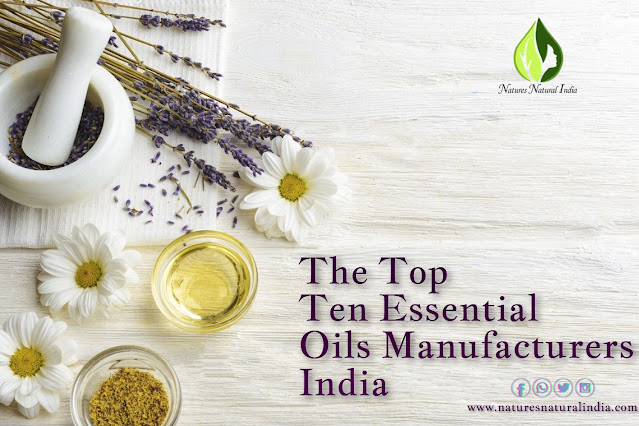Are All Organic Essential Oils 100% Natural and Pure?
Have an Insight!
We commonly use the terms ‘100% natural’, ‘organic’, or ‘certified organic’ for essential oils. We often use them interchangeably, but they are different in meaning. Sometimes, manufacturers use these terms liberally to market their products. The question arises about the meaning, claims of manufacturers, and certifications. Let us have some common understanding of the farming techniques of the plants to identify the ‘organicness' of the organic essential oils.
It is a commonly known fact that essential oils are derived from the parts of diverse plants. These plants are cultivated in three ways - Conventional, Organic, and Wildcrafted.
Conventional- When plants are cultivated conventionally, there is liberal use of pesticides and fertilizers in farming. There is no restriction on any material or method of farming. The cultivators have a free hand to use different materials and methods to maximize the harvest at the lowest cost. They often use harmful chemicals and fertilizers to grow as much crop as possible to derive profits. These all affect the plants and their natural chemical composition. It again affects the quality of essential oil derived from them. Anyway, the essential oil extracted from the parts of such plants is pure & natural if any synthetic odor or color, or substance is not added to them.
Organic- Organic cultivation of plants entails mechanical farming without pesticides and fertilizers containing harmful chemicals. It does not involve the application of synthetic substances to enhance output and allows plants to grow naturally. The essential oil extracted from organically grown plants is called organic essential oil. Sometimes manufacturers also get USDA certification for recognizing organic farming of the plants. The essential oil derived from such certified organically grown plants is known as a certified organic essential oil.
Sometimes manufacturers add external substances during the manufacturing process to change the color, odor, texture, and thickness of the essential oils. Such essential oils cannot be called natural essential oils, though the plants from which they have been extracted are organic. The essential oils derived from organic. conventional plants without any synthetic odor, color, preservatives, and harmful chemicals are 100% natural organic essential oils.
The quality of essential oil also depends on the type of farming of the plants through which it is obtained. Only rigorous scientific testing can reveal the chemical composition of the essential oils derived from different farming methods. The findings of gas chromatography and mass spectrometry analysis are useful to throw light on the potency and purity of organic essential oils, and natural essential oils obtained from conventionally grown plants.
The Certificate of Analysis, Gas Chromatography, and Mass Spectrometry details assure the standard practices or transparency maintained by the suppliers. However, the users of essential oils in real scenarios depend on the information and products provided by the manufacturers. Ultimately, the experience of users and the availability of essential oils determines the dynamics of the market. There is no regulatory authority to monitor and approve the quality or grades of essential oils.




.jpg)
Comments
Post a Comment